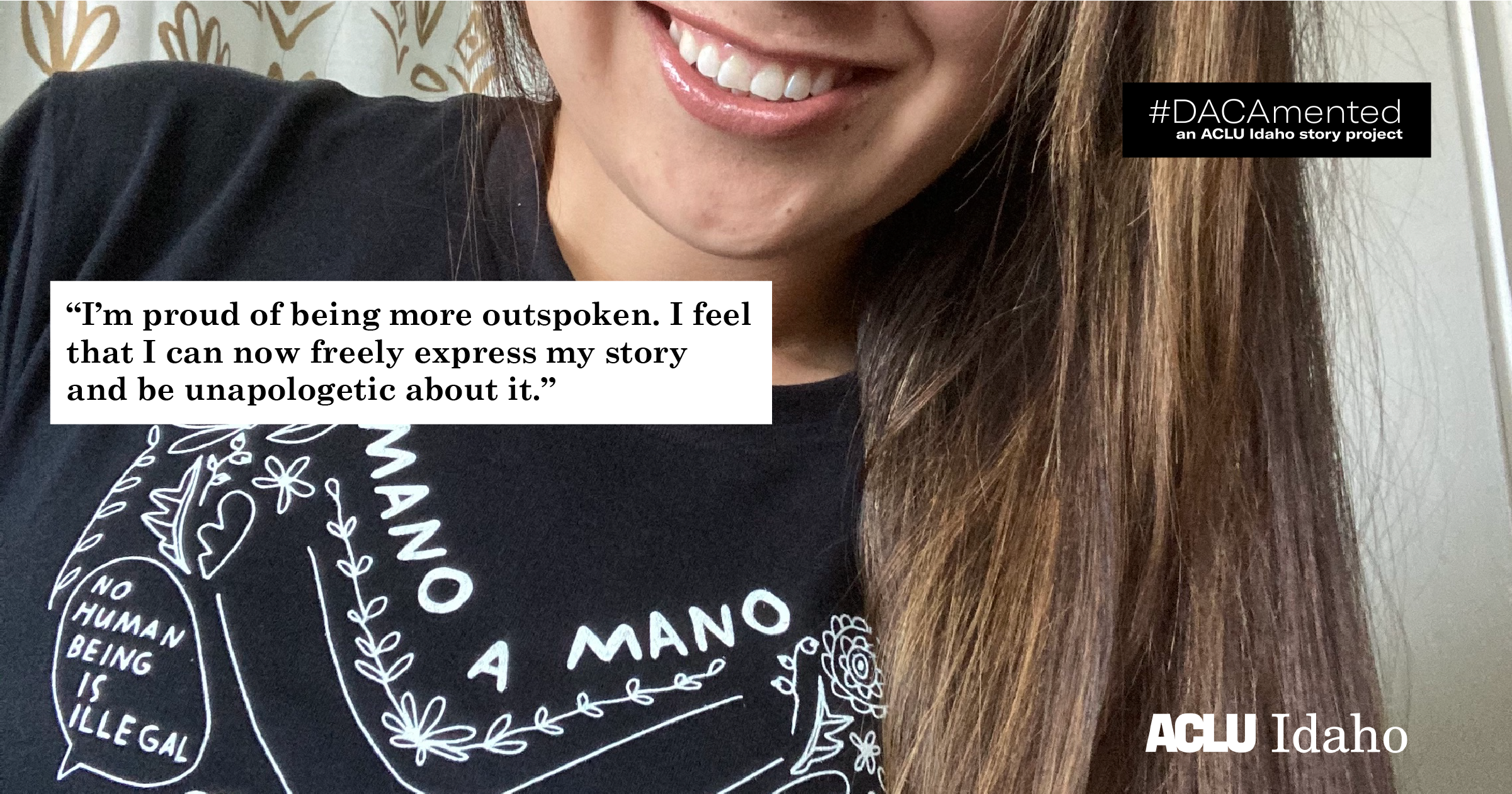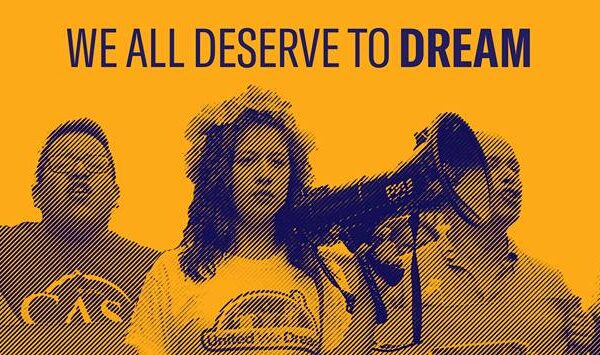Ashley was born in Guadalajara, Jalisco, MX. Although both of her parents were working nonstop in Mexico, they were struggling financially to support the family. Her father was tired of living this way, so he came to the US first, then Ashley and her mom later followed. She was only three years old when they crossed so her recollection of how they crossed the border is a blur. She remembers her mom telling her that at one point they were in the desert and they ran out of food and water that her mom gave her liquid Tylenol just to keep her hydrated. The coyote told her mom that it would be easier if she just left Ashley behind to cross with a different group por la linea, that since Ashley was little they wouldn’t question her, but her mom refused to be separated from her. After getting detained two times at the border they finally succeeded to cross on their third attempt. Ashley was a few days away from turning four when she arrived in the U.S.
How did living undocumented make you feel?
I feel that I grew up feeling like the United States was my home and then realizing that people in my community and in this country didn’t feel the same, it was tough. It also made me upset knowing my parents worked their ass off and are very good people, and can’t even get the benefits or security they deserve.
Did your family ever discuss an emergency plan in case someone got detained by ICE?
I’m sure they had those conversations, but I was never included in them since I was very young. I didn’t know a lot about immigration or legal status until I was in middle school. I remember one time my mom got in a car accident and she was freaking out and I didn’t know why because it wasn’t her fault, we were the ones that got hit. In my head, I was like "why is my mom scared of the cops, we didn’t do anything?” I now realize that my mom was freaking out because she didn’t have any documentation. It was sad to see my mom’s reaction of being scared to get questioned, her being terrified that we shouldn’t get pulled over, ever, because that could mean deportation.
When you and your mom got into that car accident was that the moment you realized that you were undocumented, or when did that realization hit you?
I think I always knew that I wasn’t born here. But I didn’t realize how bad it would affect me until I was in high school and I couldn’t take drivers ed. My mom would be like “esque no tienes un seguro,” and I was just so confused. I also wasn’t able to sign up for sports in high school because they required you to put your social security number for insurance purposes. I was so excited to join, I grew up watching “Bring It On,” and now I couldn’t even do that. I think it made me stop caring like I can’t do sports or go to college, I can’t drive, so what was the point of trying? I feel like I just started doing the bare minimum to get by. I also feel that since the people I surrounded myself with were predominantly white or with legal status, and I didn’t really have much family here, I just didn’t have anyone to connect with or that knew what I was going through. I always felt alone. Then DACA finally happened when I was 19.
Once you obtained DACA how did your life change?
I felt more confident to speak up. Nobody really knew about my status at my school, they knew I was from Mexico but not what I could and couldn’t do. When I got DACA I was never ashamed of saying it, I was proud. I was proud because now I had something that protected me, I finally felt a sense of security. But after renewing it the first time, and then a second time, it made me realize how this isn’t permanent. Especially when Trump came into the presidency and talked about getting rid of DACA. All of us pay around $500.00 in DACA fees every two years, and some people pay attorney fees as well to help them fill out their paperwork. I don’t mind paying that fee but then to have someone come and say “not good enough, we are going to take that away.” It’s like “what?’’ We are literally doing everything we are supposed to do, but yet we still are living in fear of it being taken away.
How did you and your family react to the last presidential election?
I cried. I was super emotional. I think everyone took it as a joke and then it became real. It was really frustrating to see how someone that could speak with such ignorance and speak so negatively about the people that I love, because he spoke about Mexicans in general, was now going to lead this country. I was so sad for the country, for my family, and for the sake of humanity. I was scared again. Waking up and not knowing what he is going to say or do next. I feel that it also gave people the confidence to speak so badly about immigrants because there is no such thing as “illegals” we are human.
What is the thing you are the proudest of so far and why?
I’m proud of being more outspoken. I feel that I can now freely express my story and be unapologetic about it. I didn’t choose this life, I didn’t choose to be born in Mexico, that was the life that was given to me and I don’t want to be ashamed or embarrassed. My parents did what they felt was best and I can’t blame them. Now that I am a mom, I’m doing the best I can, and if that means having to flee a country full of poverty and violence I would do it.
What are you hoping to accomplish in the future?
I hope to be more involved in the community and try to work for positive changes, especially in the Latino community. I want to make sure that my kids grow up in a better, loving, and a more diverse and accepting world.
Why do you think it is important to share your story and speak up?
I feel that if you stay silent, you are letting the enemy win. And unfortunately, that enemy is a big group of people, the number of uneducated people who lack compassion. Sharing my story and speaking up will hopefully make people understand it, even if it is for a split second. We can’t stay silent when it comes to these issues. If we stay silent nothing will change.
What do you wish more people knew about immigrants/DACA recipients?
Undocumented people DO pay taxes and also there is also no pathway to residency or citizenship if you are DACA recipient. I also feel that something everyone should do is to speak to your coworkers, speak to your friends, your friend’s friends. Don’t be afraid to spark that conversation. If someone says something negative about DACA or about undocumented people, try to change their minds. Let them in on the secrets, that are not really secrets. Let them in on that information that is public, but they don’t take the time to research.
To the parents that became citizens after years of being undocumented speak to your kids about the struggle. Many times parents don’t explain to their kids how difficult the process of becoming a citizen really is and their kids grow up thinking it’s easy and grow up misinformed.
Don’t be afraid to stand up for people that have fewer rights than you. Spark those conversations and don’t go back into the shadows.
What message do you have for Dreamers?
Don’t give up. Don’t give up on your dreams. It might get tough at times, but sometimes we lose a battle but that doesn’t mean we lose a war. That’s the message that keeps me going.


